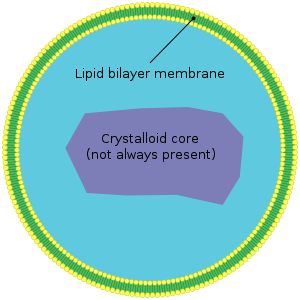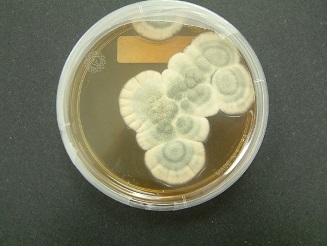Exciting research challenges
Despite 60 years of research worldwide, many questions have remained incompletely unanswered. How do peroxisomes develop when cells divide? How are damaged peroxisomes recognized and recycled? In some areas we have already learned a lot in the past years, but most likely just the tip of the iceberg. We still know little about the diversity of peroxisome functions. New unexpected roles of peroxisomes are uncovered year by year. For instance, peroxisomes are also involved in biotin biosynthesis and defence against pathogens. At first glance such basic research questions might seem unrelated to our real life. But only if we have understood in detail how this organelle works, we can identify bottlenecks and optimize and extend functions to secure and improve life on earth.
Small, everywhere and crucial for cell vitality
Peroxisomes are small organelles (or compartments, membrane-enclosed “rooms”) that occur in almost all cells – from a simple baker`s yeast cell to crop plants and humans. Peroxisomes are essential for cell vitality. For instance, people born with inherited peroxisome defects generally die rather early. Also, oily seeds of crop plants with damaged peroxisomes can no longer germinate and are inefficient in photosynthesis.
Peroxisomes were discovered about 60 years ago and initially called “microbodies” because of their small size (1 µm in diameter), which is in the range of bacteria. The small size and fragility of peroxisomes pose significant technical challenges in research laboratories. Therefore, research on peroxisomes has long been neglected compared to other cell organelles such as the cell nucleus, mitochondria or chloroplasts. Despite being small, peroxisomes are extremely important. Nearly all organisms are made of cells, and nearly all cells have and need peroxisomes, from beer- and penicillin-producing fungi, via cereals and biofuel plants to us humans.
Thinking ahead: How to solve challenges of the 21 century?
We are all aware that our world is facing major challenges in this century that nobody knows to solve yet. For instance, numerous diseases need to be treated by smart strategies, and new antibiotics must be developed against natural resistances. Likewise, we need to secure human food, animal feed and (bio-)energy for the dramatically growing world population of 9 billion by 2040. This seems nearly impossible.
Peroxisomes significantly contribute to the fitness and productivity of organisms: from antibiotic-producing fungi, via bioenergy crops to domestic animals and humans. Both basic and biotechnological peroxisome knowledge can advance major progress in medicine, agriculture and biotechnology.
PERFUME: Training the next generation of scientists
In 2013 the EU funded the Marie Curie Initial Training Network PERFUME, which stands for “PERoxisome Formation, FUnction and MEtabolism”. This large project, led by Prof. Dr. Ida van der Klei (University of Groningen, The Netherlands), received a budget of 3.9 Mio € to study peroxisomes intensively. Eleven partners from different universities, research institutes and the industry from four European member states and Norway have come together to jointly advance peroxisome biology and biotechnology. The partners have very different backgrounds, but are complementary in a powerful manner. Skype meetings are held nearly every day, and the PhD students frequently travel to workshops, conferences and partner laboratories for mutual learning and to pull down historical walls that have separated traditional research areas for decades.
The programme provides state-of-the-art research training for 12 PhD students and 4 postdocs at the interface of medicine, plant and fungal biology. Marie Curie Initial Training Networks are highly prestigious awards funded by the European Union’s Seventh Framework Programme, focused on the training of the next generation of European leaders in science to solve interdisciplinary questions of global concern and to increase the European competitiveness in research and development.
The basic and biotechnological peroxisome knowledge generated by PERFUME until 2016 will contribute to significant progress in medicine, agriculture and biotechnology. Likely not tomorrow and not next year, but in the critical decades to come.


